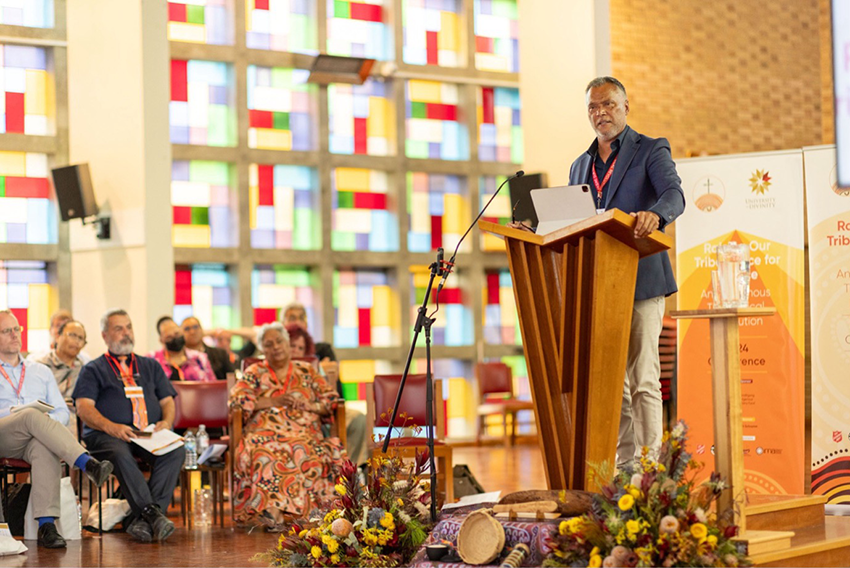From 5 to 8 February, the University of Divinity in Melbourne hosted the ‘Raising Our Tribal Voice for Justice’ conference.
The conference gathered Indigenous theologians and church leaders from Australia, Aotearoa, and the Pacific. It explored Indigenous theology and fresh perspectives on Australia’s colonial history.
Colonialism ongoing
NSW and ACT Synod’s Director, First Peoples Strategy and Engagement, Nathan Tyson, presented a paper on the topic of Reconciliation and Reparation.
In a wide-ranging paper, Mr Tyson argued that, in order to achieve reconciliation, the church had to acknowledge its ongoing role in colonialism.
“In my view there is very little of Christ in “colonial theology,”” he said.
“Colonisation for First Peoples in Australia, and for many other First Peoples, meant dispossession, beatings, rape, enslavement, murder, massacres, theft of children, abuse of children, and attempted genocide.”
“Let’s be clear – none of these behaviours are in accordance with the teachings of Christ found in the Gospels.”
“So here we are in 2024. I’d argue that while some things have changed, much hasn’t. Colonial ideology, and particularly ideas of European theological superiority, continue to underpin much of the Christian Church’s policies and practices in this Country. Yes, we have made some progress in adopting more inclusive theological approaches, and I do recognise and value the efforts being made, however there still remains much work to be done.”
“I agree with [Chris] Budden’s contention that “truly oppressed and abused people cannot be reconciled until people stop abusing them and make amends for the past.”
Aunty Jean Phillips receives honorary doctorate
During the conference, the University of Divinity conferred a Doctor of Divinity on Aunty Jean Philips.
The ceremony was led by Professor Aunty Anne Pattel-Gray, Rev. Dr Garry Deverell, and the Vice-Chancellor and Deputy Chancellor of the University of Divinity.
Aunty Jean Phillips spoke about her growing up in Cherbourg on the mission and about how many Aboriginal Christian leaders emerged from this place.
She called the non-Indigenous church to account for not supporting Aboriginal pastors and ministries, asking that churches would adopt an Aboriginal Christian leader in practical ways such as paying for their car registration so that they can do their work.
Rev. Dr. Rebecca Lindsay was present at the ceremony, which she said was one of the highlights.
“As she always does, she offered the invitation of friendship, asking that non-Indigenous Christians would get to know our Aboriginal brothers and sisters and walk alongside,” Rev. Dr Lindsay said.
“It was such a joy to be present.”
“Aunty Jean received a standing ovation.”
The conference featured addresses from Stan Grant, Rev. Dr Katalina Tahaafe-Williams, and Professor Aunty Anne Pattel-Gray, among others.












